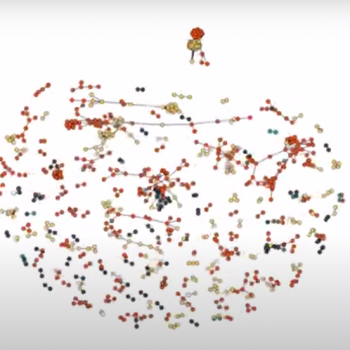Differing immune responses discovered in asymptomatic cases and those with severe COVID-19
A UK-wide study part-funded by the NIHR has identified differences in people’s immune responses to COVID-19, depending on whether they have no symptoms or more serious reactions to the virus.
In the study “Single-cell multi-omics analysis of the immune response in COVID-19”, published this month in Nature Medicine, researchers and their collaborators in the Human Cell Atlas initiative analysed blood from 130 people with COVID-19. These patients came from three different UK centres in Newcastle, Cambridge and London and ranged from asymptomatic to critically severe.
The researchers found raised levels of specific immune cells in asymptomatic people to help fight infection – but that patients with more serious symptoms had lost these protective cell types and instead gained inflammatory cells. In severe cases this led to lung inflammation, blood clotting difficulties and hospitalisation.
While it is not yet understood how the infection stimulates these immune responses, the study gives a molecular explanation for how COVID-19 could cause an increased risk of blood clotting and inflammation in the lungs, which can lead to the patient needing a ventilator.
This also uncovers potential new therapeutic targets to help protect patients against inflammation and severe disease.
Professor Menna Clatworthy, senior co-author of the study and Capacity Building Theme Lead, said: “This is one of the most detailed studies of immune responses in COVID-19 to date, and begins to help us understand why some people get really sick while others fight off the virus without even knowing they have it.
“This new knowledge will help identify specific targets for therapy for patients who get sick with COVID-19.”
In the future, research may identify those who are more likely to experience moderate to severe disease by looking at levels of these immune cells in their blood.



